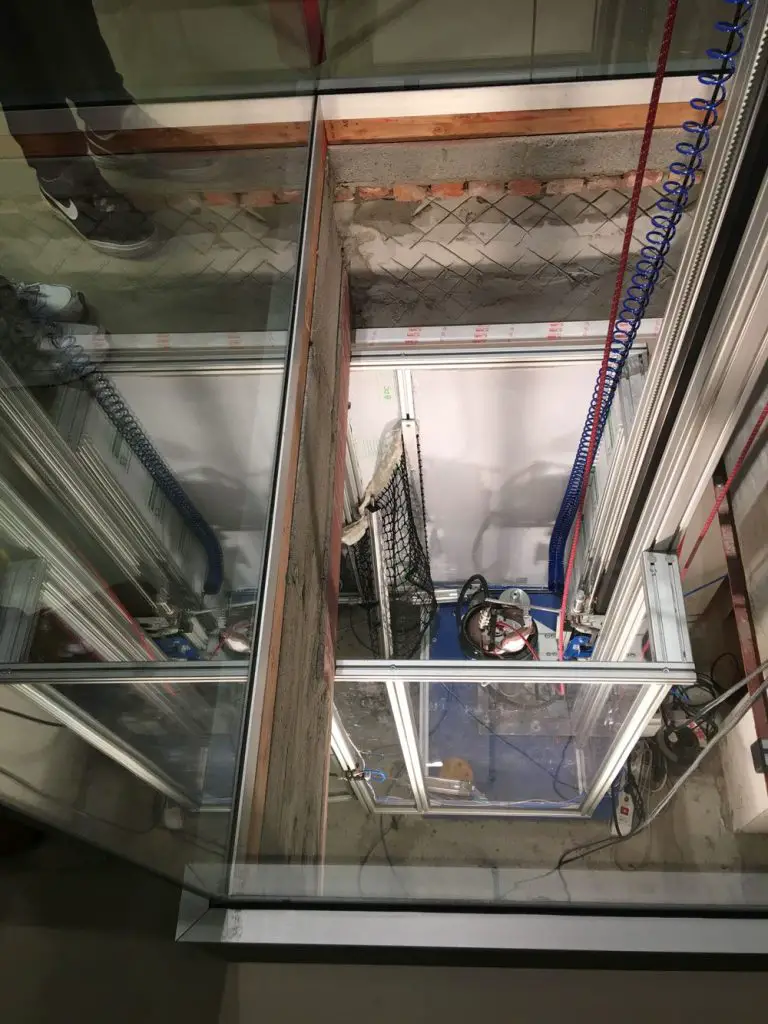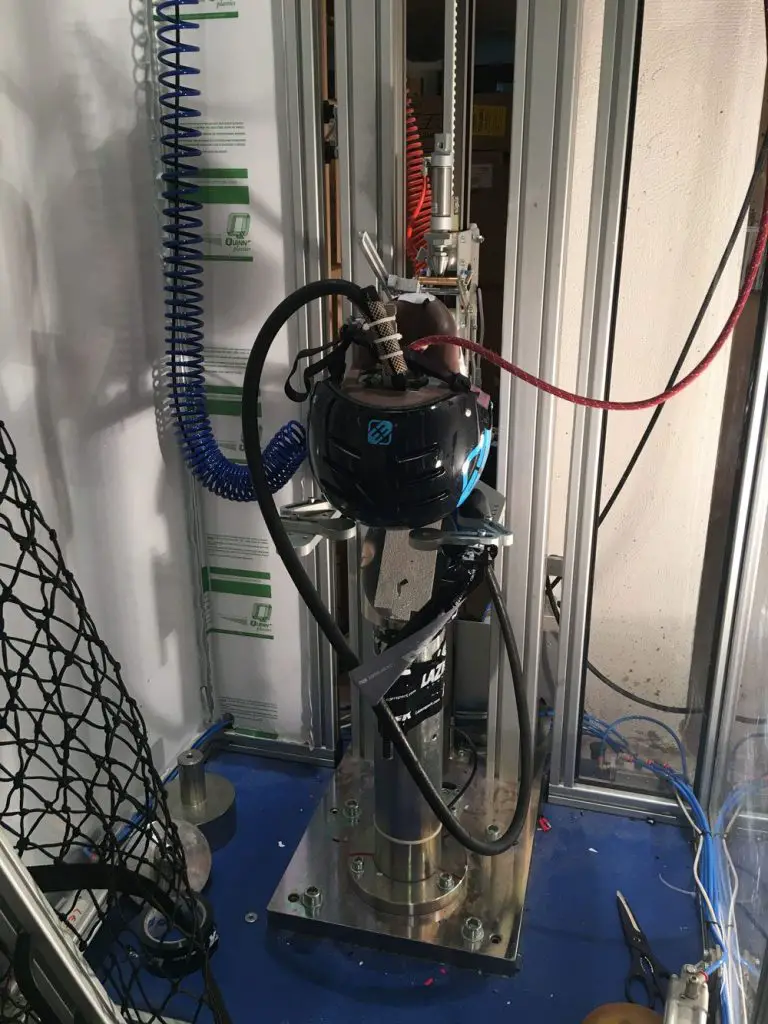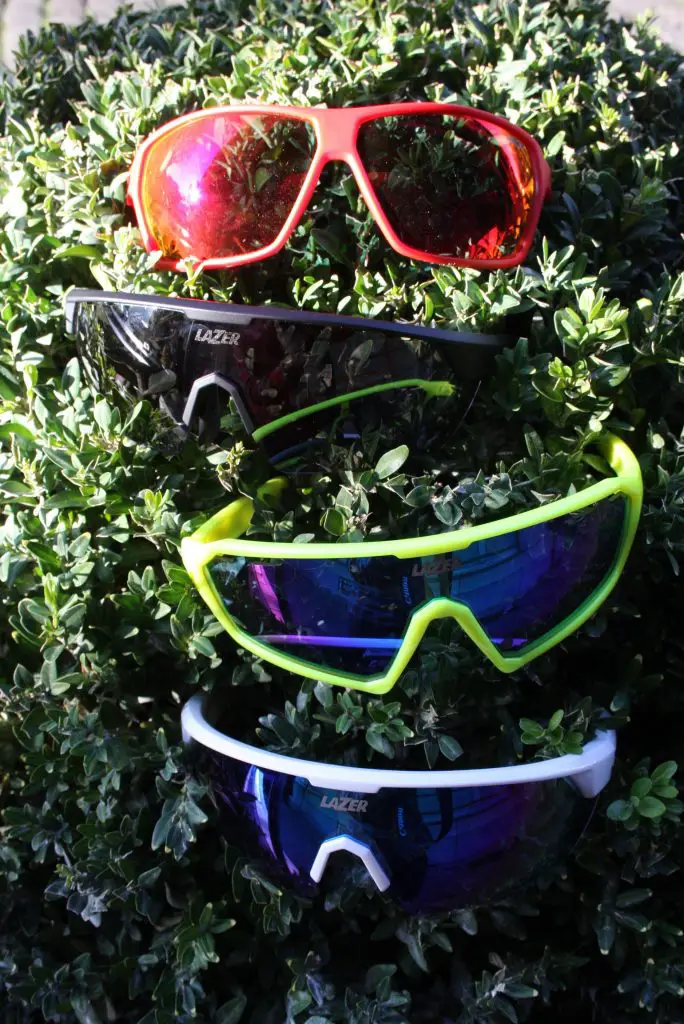In a converted paper mill in the center of Antwerp, Belgium sits the headquarters for Lazer Sport, purveyors of popular cycling helmets of all shapes and sizes. Where giants vats of pulp were once pressed and dried into paper, now sits the modern and trendy offices of Lazer – where all of its research and design, sales, marketing, management, product development and testing takes place. There’s even an in-house photo studio nestled at the end of a short hallway past the loo.

Last week we had the pleasure of spending time in Lazer’s offices, getting the chance to learn about its design process, understand its philosophy, watch some helmets get smashed (in the name of safety testing) and to even have a lap or two around the Scheldecross cyclocross course. We were even treated to a brewery tour!
After we were finished watching a couple of helmets take a three-meter controlled fall onto a couple of different surfaces, we settled in for a couple of presentations from various R&D staff and marketing personnel. Lazer dedicates all of its business on products used/needed “from the neck, up” on cyclists. As such, in addition to helmets, the company also offers a nice range of eyewear. It also explains why Lazer also offers unique helmet features such as an integrated heart rate monitor, integrated tail light and BlueTooth connectivity on its e-bike helmets.




Bullet
We were shown a broad range of helmets last week, and the new Bullet is one that would most appeal to cyclocross riders and racers. Sure it’s an aero offering, and you’re going to see it on the heads of many in the pro peloton, but it looks to be a fine lid for winter ‘cross use and if you’re just into the latest high-end helmets.
The genesis for the helmet came from the feedback designers got from pro racer Andre Greipel. One of the top sprinters in the world, he needs a helmet that is as aero as it can get. But he also needed a helmet that offered some cooling benefits…because those aero-demanding sprints come only at the end of six hours of hot riding. The best of both worlds? Lazer did that with the Bullet.
Aside from its wind tunnel-tested aero shaping, the key feature of the Bullet is the Airslide VOD. The Ventilation On Demand (VOD) is a essentially a very large channel in the middle of the helmet with a honeycomb-like covering. Beneath the covering are louvers. Not unlike the vents in the dashboard of your car, these louvers open and close to welcome or restrict airflow through the helmet. The louvers are engaged when the aforementioned honeycomb cover slides towards the back (open) or forward (closed). The mechanism slid to and fro quite easily…I can see it easily done with one hand while riding.

Lazer is known for its helmet-top Rollsys retention system, but having a rolling dial on top of an aero helmet makes it…not so aero. Thus, the TS+ retention system places the dial adjuster in the more typical spot at the base of the head.




Lazer has a couple of other neat technologies it uses on its helmets, and the Bullet is open to welcome both of them.
The first is the LifeBEAM system. Lots of people are into wearing heart rate monitors when riding and racing, but some people aren’t into wearing a chest strap to facilitate the heart monitoring. Lazer figured this out, and created a heart rate monitor that is fixed inside the helmet, with a sensor in the forehead area.
Lazer has done a lot of wind tunnel testing (we even got to stand inside the wind tunnel on this trip), and it has learned that the aerodynamic properties of even the most aero helmet go out the window if the rider’s head is not in the proper position. As a result, Lazer has created the Body Positive Meter, which is an inclination sensor to tell if your head is in the proper position. If it’s not, you’ll hear a sound and feel a vibration, reminding you to get your head straight.
We didn’t get a weight on the helmet, but it will be available in four sizes – XS through L – when the helmet is released this spring.

